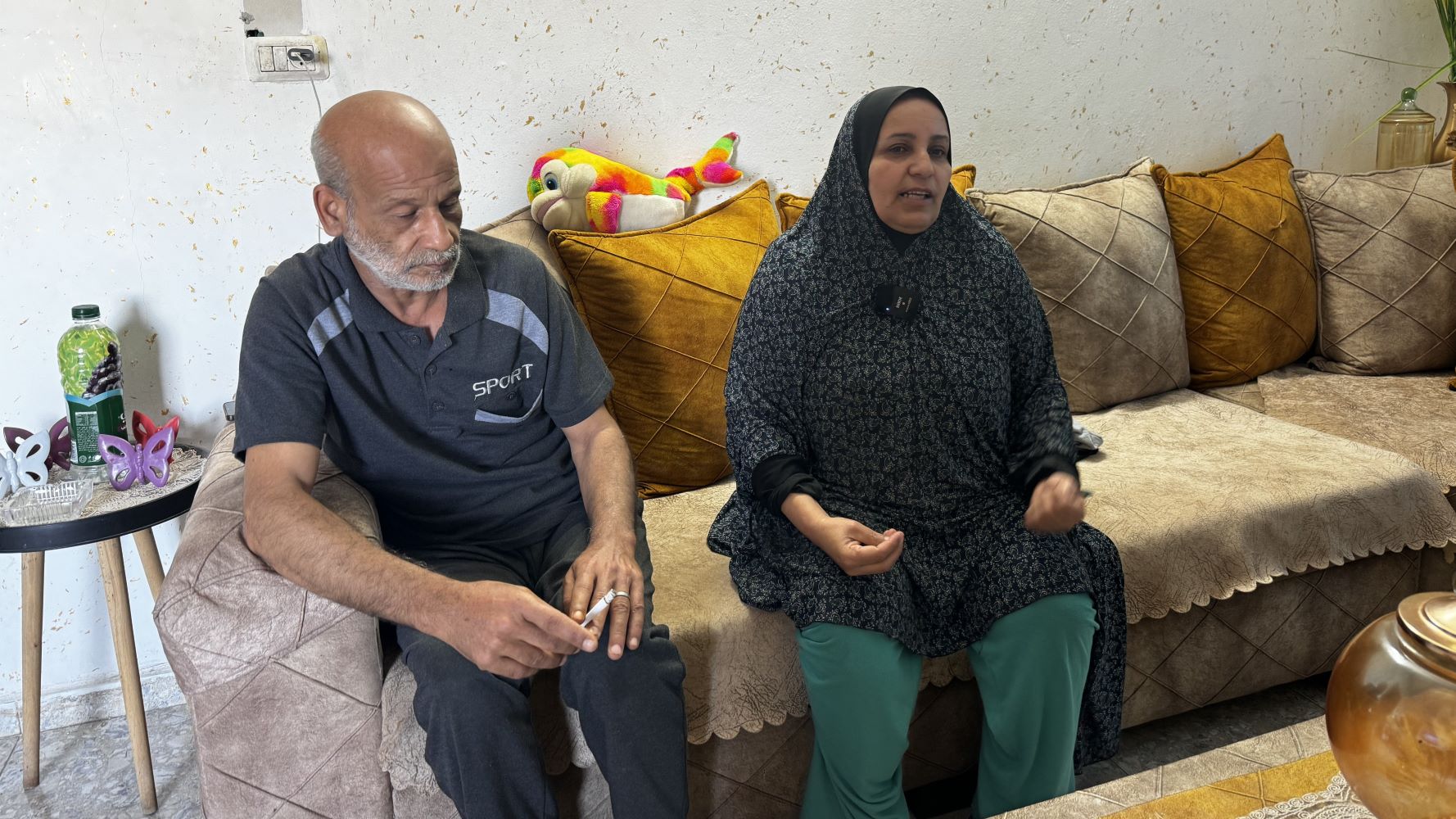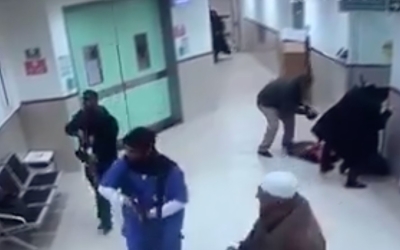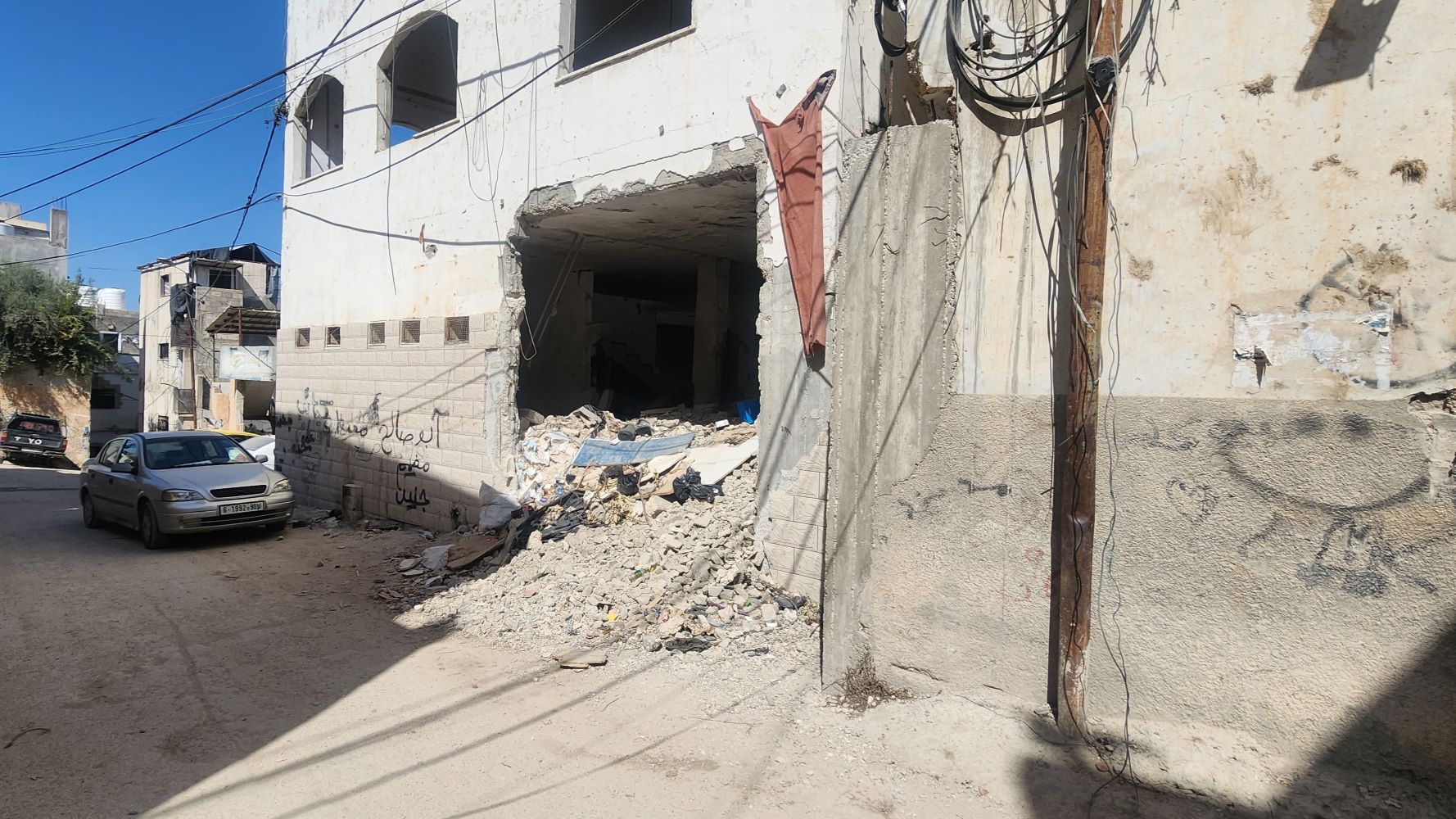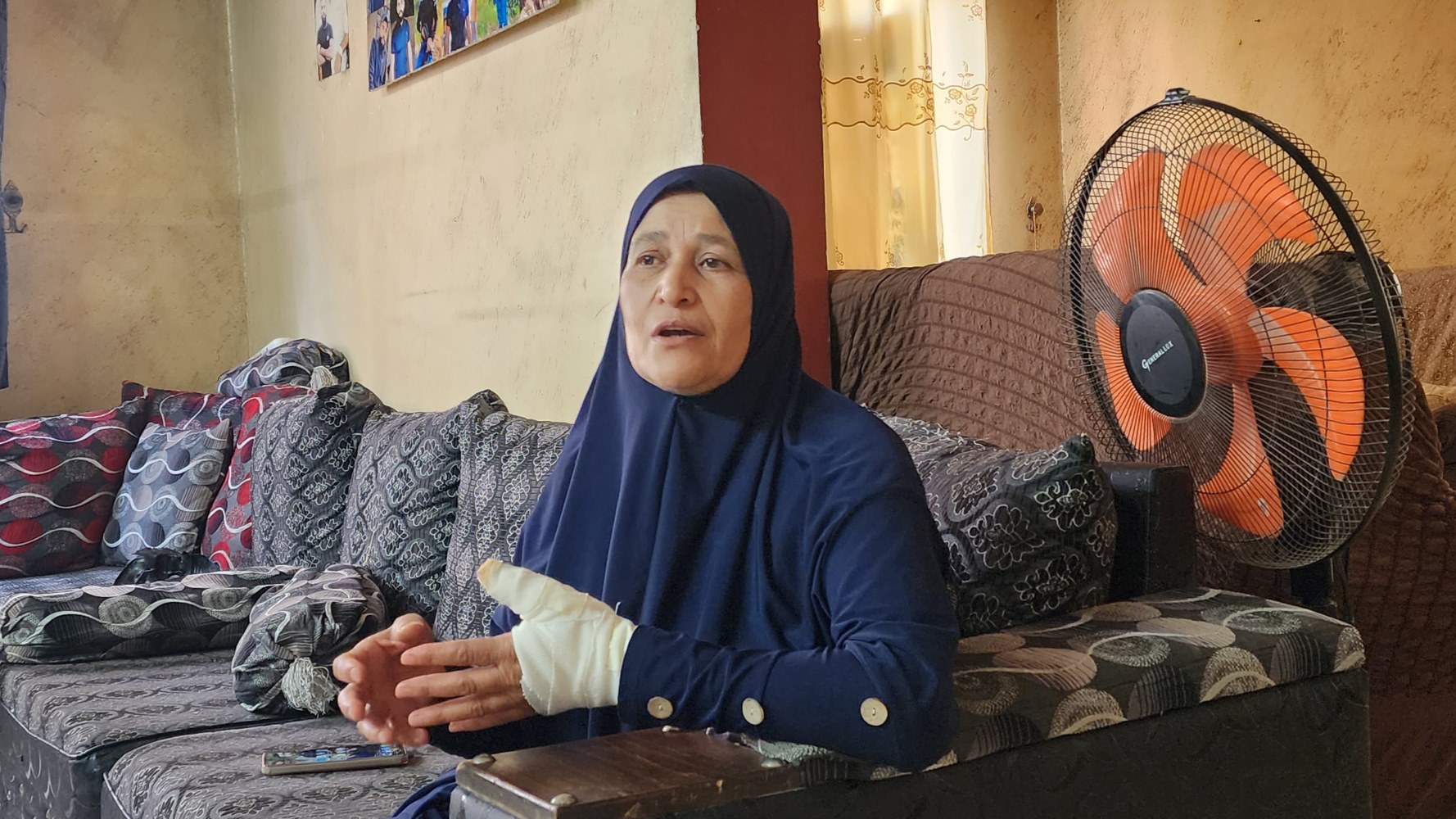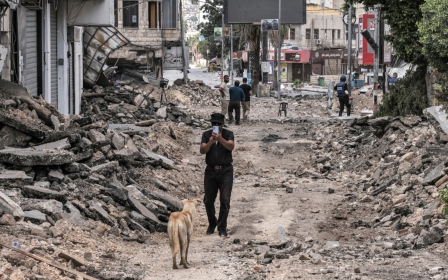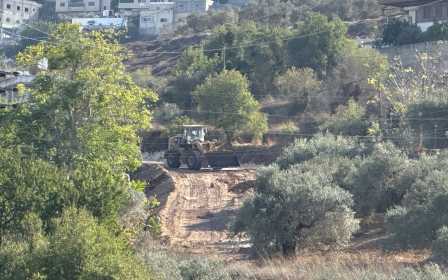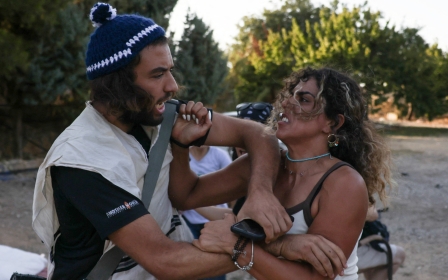Palestine: In Jenin, families are enduring poverty and an endless cycle of Israeli raids
During each Israeli incursion into the Jenin refugee camp in the occupied West Bank, 53-year-old Zahra Mahmoud Mari gathers whatever clothes and essential items she can grab.
With her three daughters and husband, she leaves the family home on Mehyoub Street located in the heart of the camp and heads to the Shuhadaa neighbourhood on the outskirts of Jenin in search of safety.
There the family rent a small house using savings and the little income they have, which provides temporary safety from the Israeli occupation forces.
They stay there, transfixed to news reports, waiting for the announcement that the Israelis have left so they can return home.
“It’s not easy to leave our home and camp,” Mari told MEE.
New MEE newsletter: Jerusalem Dispatch
Sign up to get the latest insights and analysis on Israel-Palestine, alongside Turkey Unpacked and other MEE newsletters
“We’re not running away, but it’s a hard choice forced upon us.”
Mari’s neighbourhood is the focal point of Israeli raids in Jenin and even her home near the Ansar mosque has been targeted multiple times.
During the initial incursions into the camp in July 2023, Mari’s home was damaged, and her family endured three difficult days with Israeli soldiers stationed around the house the entire time.
Following the start of Israel’s war on Gaza, the family’s situation worsened; Israeli forces blew up her husband’s brother’s homes, which were adjacent to her own, and caused further damage to hers in December 2023.
Mari recalled the final straw in June, which led to her decision not to stick around for the next Israeli incursion into her neighbourhood.
The family home came under heavy gunfire, and she said that her family experienced hours of terror.
“After more than an hour of direct shooting at the room where we were gathered, I risked my life and put my hand out the window, shouting that there were children in the house.
“Only then did they allow us to leave.”
When MEE spoke to Mari, bullet marks and other damage was visible throughout the family home.
Windows were covered with plastic to replace the broken glass, walls were destroyed and the water system was no longer working.
Amidst the fog of the Israeli assaults, Mari and her husband, Maher, could barely remember which incursion caused which damage.
Maher has been unemployed since the war on Gaza began, and their eldest son cannot find steady work.
Despite this, the family decided to rent a home outside of the neighbourhood to ensure their safety, adding an extra financial burden to their many struggles.
Mari said, “We were left alone, without protection or support. What we hear in the media is different from reality; we even have to buy drinking water.”
Buying water may seem straightforward, but for a family of six with no regular income, the costs add up.
Sometimes the family are forced to forgo this “luxury” and risk drinking water contaminated with waste.
Economic hardship
More than 3,000 residents of the Jenin refugee camp have sought permanent housing alternatives outside of the camp so they have a place to escape to in the event of an Israeli incursion. Some have even left the camp permanently.
The number is likely to rise as Israel shows no sign of letting up the number of raids it is carrying out, with Palestinians documenting more than 80 incursions into the camp in 18 months.
Some of these lasted several days, the longest being what Israel called Operation Summer Camps in August, during which more than 7,000 Palestinians were forced to leave the camp.
This disruption, along with the cumulative physical damage from the incursions and pre-existing high unemployment in the camp, has led to a significant economic burden on the more than 17,000 Palestinians living there.
Nahida Salah, 44, and her five children have been unable to leave the camp because of the prohibitive expense. For over two years, Salah has lived in the Dammij neighbourhood after separating from her husband in Jordan and returning to settle with her children and family in the camp.
The house she rents is located in the heart of a neighbourhood that is consistently targeted by Israeli forces during incursions.
Salah can barely afford the minimal rent she pays, and if she wished to move outside the camp or to its outskirts, the rent would double.
“Even my family, who I turned to after my separation, can barely manage under the current circumstances,” she said.
MEE accompanied Salah and her daughters, Sham, 7, and Shatha, 10, who seemed very attached to their mother.
She said their psychological state has been unstable because of the trauma they experience during the incursions. The sounds of bombing and continuous gunfire during these raids have left them with a constant sense of fear.
As we walked along the street in front of her house, we stepped over cardboard boxes placed on the ground to protect pedestrians from leaks from the damaged sewage and water network.
“I don’t know how I’ll manage once the rain starts. The situation is disastrous.”
No alternative
The Wahdan family shared a similar experience, but with one key difference. Their home is regularly targeted by the Israeli army, and the family, which consists of three generations, has no alternative but to remain in their dwelling.
Their building is three stories high and houses 14 Palestinians, seven of whom are children, the oldest being 10 years old.
The house is damaged from all sides: the windows are exposed to the elements or covered with plastic; doors are missing; and walls are riddled with bullet holes.
Inside, burn marks scar the walls, and the electrical system is visibly damaged.
Umm Saeed Wahdan, 57, told MEE: “After the fourth incursion and the repeated targeting of our home, we tried to leave the camp like many others. But we couldn’t, due to high rental costs and landlord fears of renting to families from the camp.”
Wahdan’s three sons are unemployed and barely earn enough to cover their children’s daily expenses, and moving out of the camp for their children’s safety would mean finding a place large enough for all of them, or renting multiple homes, with both options beyond their means.
During the camp’s longest incursion last August, the Wahdan home suffered severe damage, prompting Unrwa - the agency responsible for refugees in the camps - to deem it uninhabitable.
The UN agency provided the family with financial assistance to seek alternative housing until repairs could be made. However, according to the family, the 1,300 shekels (over $350) would only cover repairs to the front door and fix the dangerous electrical wiring.
'There are no words to describe the terror of a family confined with their children in a single room under shelling and continuous gunfire for 10 days'
- Umm Saeed Wahdan, Jenin resident
According to Wahdan, if the family rented a place outside the camp, they would have no resources left to repair their home and would eventually have to return to it as it is, once Unrwa’s rental support - which covers just three months - ended.
Living in an uninhabitable home in a nearly destroyed environment has taken a toll on the children’s physical and mental health. They suffer more frequent illnesses and viral infections, and there are the obvious health concerns from drinking contaminated water.
As the grandmother explained: “We have not surrendered to our fate, but we have no options to reject this reality. There are no words to describe the terror of a family confined with their children in a single room under shelling and continuous gunfire for 10 days.”
‘Left to our fate’
Under international law, Palestinian camps are primarily the responsibility of Unrwa, with additional organisational oversight provided by popular committees affiliated with the Refugee Affairs Department of the Palestinian Liberation Organisation.
The Palestinian Authority, as the hosting authority for refugee camps in the occupied West Bank and Gaza, also bears partial responsibility.
However, with financial crises affecting both Unrwa and the PA, these camps are left vulnerable to unemployment, poverty and Israeli incursions that cause recurring fatalities.
Jenin’s refugee camp has suffered the most from these incursions, persistent sieges, and economic stagnation, resulting in an extremely high unemployment rate and a steadily rising poverty level.
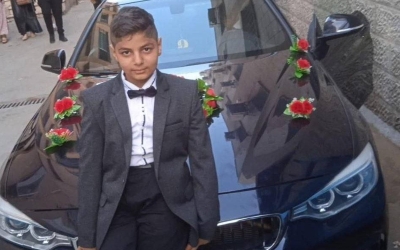
The interventions by Unrwa, the popular committees, or the PA’s institutions fall far short of what is required, according to camp residents.
Since 7 October 2023, the incursions have damaged around 90 homes in the camp beyond repair, rendered 213 homes temporarily uninhabitable and in need of restoration, and partially damaged dozens more.
Mohammad Al-Sabbagh, head of the popular committees in the camp, says that the situation is extremely difficult due to the repeated incursions and ongoing destruction of infrastructure.
The priority is to repair damage and restore minimal functionality in the camp, rebuild destroyed homes and to provide one-time partial compensation for the partially damaged homes.
Sabbagh told MEE, “The economic situation is dire. Unemployment in the camp has reached almost 90 percent or more.”
He explained that even before the war, Jenin camp residents did not benefit from work opportunities in Israel due to collective punishment measures, which deny them permits.
Frequent incursions have worsened the camp’s economic situation: most of the shops on the main streets have been destroyed, and daily life is disrupted.
Only around 800 people from the camp work within the PA.
These factors, combined with limited resources and other priorities for those responsible for the camp and its residents, contribute to a sense of abandonment felt by camp residents.
“Everyone has left us to face our fate in this camp. No one listens to our suffering,” said Mari.
Middle East Eye delivers independent and unrivalled coverage and analysis of the Middle East, North Africa and beyond. To learn more about republishing this content and the associated fees, please fill out this form. More about MEE can be found here.


